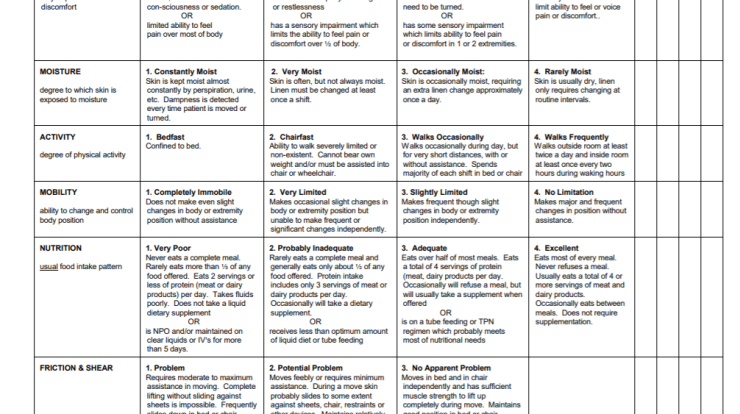The ATI Capstone Fundamentals Assessment Test is a crucial evaluation tool designed to assess the knowledge and skills of nursing students. This comprehensive exam covers essential nursing fundamentals, pharmacology, and pathophysiology, providing valuable insights into areas for improvement and enhancing nursing proficiency.
This guide delves into the intricacies of the ATI Capstone Fundamentals Assessment Test, providing a thorough overview of its structure, content areas, study strategies, test-taking techniques, and scoring interpretation. By equipping readers with a deep understanding of the exam, this guide empowers them to excel in their nursing education and confidently embark on their healthcare careers.
Test Overview
The ATI Capstone Fundamentals Assessment Test is a standardized exam designed to evaluate the knowledge and skills of nursing students at the end of their foundational nursing education.
The test covers a wide range of content areas, including nursing fundamentals, pharmacology, and pathophysiology. It consists of approximately 150 multiple-choice questions and has a time limit of three hours.
Study Materials and Resources
To prepare for the ATI Capstone Fundamentals Assessment Test, students can utilize various study materials and resources:
- Textbooks:Nursing fundamentals textbooks provide a comprehensive overview of the core concepts covered in the exam.
- Online Resources:Websites such as ATI Nursing Education and Nurse Achieve offer online practice tests and study materials.
- Official ATI Study Guides:ATI publishes official study guides that align with the exam content and provide practice questions.
Effective test preparation strategies include:
- Time Management: Allocate sufficient time for studying and practice.
- Review Techniques: Use active recall methods, such as flashcards and practice questions, to enhance retention.
- Official ATI Study Guides: Familiarize yourself with the official study guides to ensure alignment with the exam content.
Test-Taking Strategies: Ati Capstone Fundamentals Assessment Test
To manage test anxiety and maintain focus during the exam:
- Prioritize Sleep: Get adequate sleep the night before the test.
- Practice Relaxation Techniques: Engage in deep breathing exercises or meditation to calm nerves.
- Focus on Present Moment: Avoid dwelling on past mistakes or future worries.
For different question types:
- Multiple-Choice:Read the question and all answer choices carefully. Eliminate incorrect options and select the best answer.
- True/False:Determine if the statement is true or false based on your knowledge.
- Essay:Organize your thoughts and provide a well-structured response that addresses the prompt.
Time management is crucial:
- Plan Your Time: Divide the available time among different sections.
- Pace Yourself: Answer questions at a steady pace, avoiding spending too much time on any one question.
- Guess Strategically: If unsure, make an educated guess and mark the question for review.
Content Analysis
| Content Area | s | Key Concepts | Example Questions |
|---|---|---|---|
| Nursing Fundamentals |
|
|
|
| Pharmacology |
|
|
|
| Pathophysiology |
|
|
|
Sample Questions and Explanations
Multiple-Choice:
Which of the following is NOT a step in the nursing process?
- (A) Assessment
- (B) Diagnosis
- (C) Implementation
- (D) Treatment
Answer: (D) Treatment
Treatment is not a step in the nursing process. The correct answer is (D) Treatment.
True/False:
The five rights of medication administration include the right patient, right time, and right dose.
- (A) True
- (B) False
Answer: (A) True
The five rights of medication administration are the right patient, right time, right dose, right route, and right documentation.
Essay:
Discuss the nursing interventions for a patient with heart failure.
Answer:
Nursing interventions for a patient with heart failure include:
- Monitoring vital signs and fluid status
- Administering medications as prescribed
- Providing patient education
- Supporting emotional well-being
Scoring and Interpretation
The ATI Capstone Fundamentals Assessment Test is scored on a scale of 1-1000. A score of 750 or higher is considered passing.
Test scores can be interpreted to identify areas for improvement. Students can review their performance in each content area and focus on strengthening their knowledge and skills in weaker areas.
The test results can be used to enhance nursing knowledge and skills by:
- Identifying specific areas for further study
- Guiding the development of individualized learning plans
- Providing feedback on progress towards nursing competency
FAQ Resource
What is the purpose of the ATI Capstone Fundamentals Assessment Test?
The ATI Capstone Fundamentals Assessment Test evaluates the knowledge and skills of nursing students in essential nursing fundamentals, pharmacology, and pathophysiology.
What are the content areas covered in the test?
The test covers a wide range of content areas, including nursing fundamentals, pharmacology, pathophysiology, and related nursing concepts.
How can I prepare effectively for the test?
Effective preparation involves utilizing recommended study materials, practicing time management, and reviewing key concepts thoroughly.
What strategies can I employ during the exam to maximize my performance?
Test-taking strategies include managing anxiety, answering different question types effectively, and pacing oneself appropriately.
How are the test results interpreted, and how can I use them for improvement?
Test results provide insights into areas of strength and weakness, guiding students in identifying areas for improvement and enhancing their nursing knowledge and skills.
